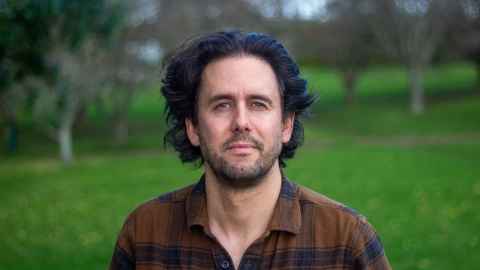Sam Blackman
To hear Sam Blackman talk about his influences, education and career is to realise his latest preoccupations are the distillation of everything that’s come before.

Sam Blackman is someone for whom terms like “autodidact” and “Renaissance man” are inadequate. While they go some way to recognising his mastery of a wide range of skills – in software development, the law, crafts – they don’t touch on his powers of persuasion.
It’s that talent he is exercising with his latest entrepreneurial involvement. The New Zealander, whose mother is American, grew up in Rotorua, attended the University of Auckland, lived in the United States for a decade and is now returning his focus to the US as he helps introduce a Kiwi software invention there.
Breaking the news to his 2,700-plus LinkedIn followers, he wrote: “I am excited to share that I am dedicating most of my working week to helping Sence go to market in the United States, starting in New York City. I have closely followed the progress of the Sence product and team over the past couple of years as they have driven social media safety and genuine engagement for some of New Zealand’s most iconic brands.”
Sence uses AI to digest the often vast volumes of comments on online platforms. The aim is to discern tone, context and emotion with the same accuracy as a human.
It’s right up Sam’s alley.
“Personally, the social media feed and comment thread cesspit has driven me away from engaging with mainstream platforms in recent years. Sence gives power back to brands.”
Sam has a solid entrepreneurship CV. His most recent ventures include Nuvocargo, which he co-founded in 2019 to provide logistics software for freight shipments between the US and Mexico. He remains an adviser to the firm, which has raised venture capital funding of US$75 million.
He also dabbled in gin. He and his wife launched distillery Isolation Proof, reaching six figures in revenue within six months.
“We’re no longer involved, but it’s still going strong and is a bit of a darling of the New York State craft spirits scene.”
He feels no shame from entrepreneurial failure, which he says he’s had more of than success. By being willing to try things out he is following in the footsteps of his father – “an iconoclast who challenges a lot of norms” – and his maternal grandfather, a university professor and avid tinkerer with whom he “spent a lot of time with tinkering, fixing, building and crafting.”
His mother’s facility with language translates in Sam to fastidiousness in all he does.
“I view both entrepreneurship and software development as crafts, in the same way writing prose is a craft.”
Sam went to university in 2005 to study philosophy, logic and computation.
“I strongly endorse studying analytical philosophy. It teaches something desperately missing in today’s world: how to approach the overabundance of information with a sceptical lens.”
He also studied law, thinking it might lead to a career, but discovered he preferred to take risks than advise on them. Those that didn’t pay off “taught me something different and nuanced” and, ultimately, he learned a lot about building great software and teams.
Bringing Sence to the US – which consumes 20 hours a week – isn’t his only mission.
“The rest of my week is filled with mentoring and advising other startups through the Ministry of Awesome’s Founder Catalyst programme, helping launch Endeavor New Zealand and raising our kids with my wife.”
He is also intent on increasing the flow of human capital into New Zealand from successful expats. In 2023, he went to Harvard Law School and wrote a master’s thesis – published in the New Zealand Law Review in September 2025 – on how to lower this country’s tax barriers for entrepreneurial immigrants. It won a John M. Olin Student Writing Prize in Law and Economics.
But the bigger prize he is eyeing would be a change in our Foreign Investment Fund tax rules, so the economy could get a boost from enterprising Kiwis with illiquid shares in overseas startups “bringing their talent home”.